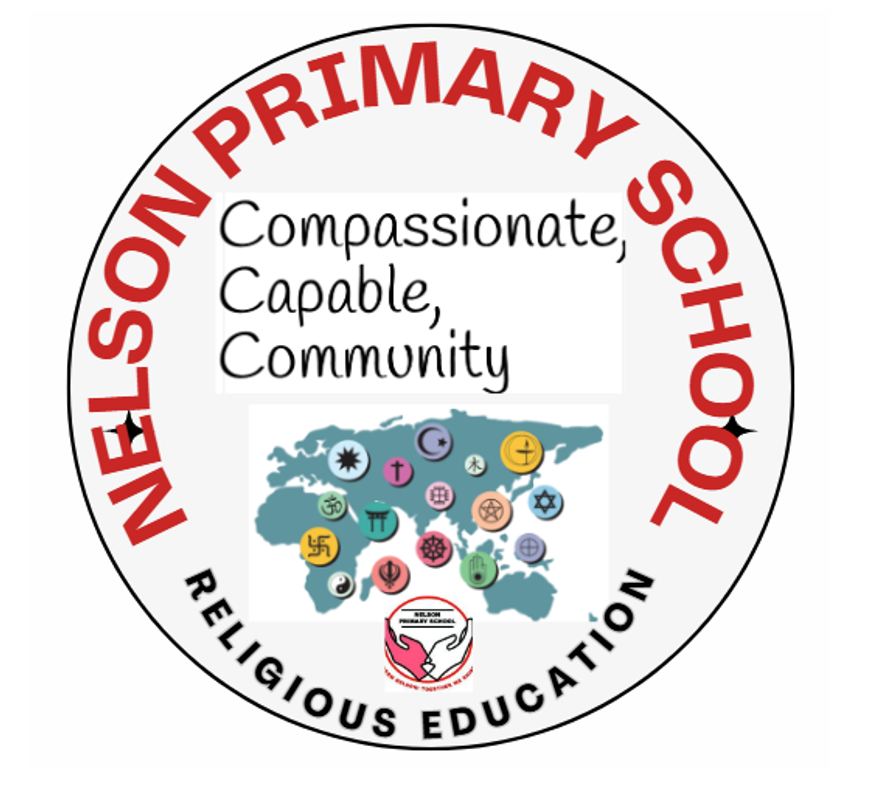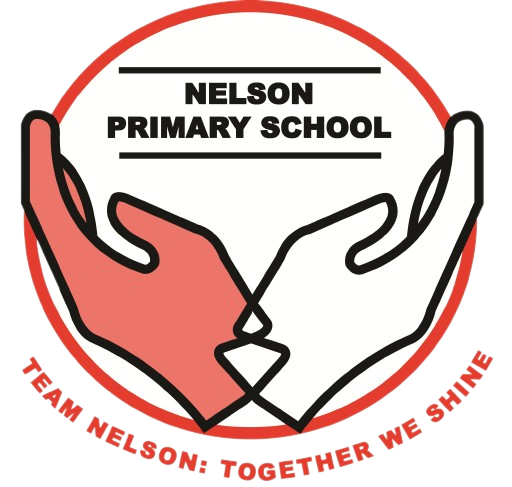Religious Education
"At Nelson, we believe Religious Education helps our pupils become not only academically capable, but also deeply compassionate, reflective, and respectful of the world around them."
 Since January 2025, we have refreshed our Religious Education curriculum in line with the Birmingham Agreed Syllabus for RE (Route 3). This allows our pupils to explore both religious and non-religious worldviews in ways that are meaningful, personal and character-developing.
Since January 2025, we have refreshed our Religious Education curriculum in line with the Birmingham Agreed Syllabus for RE (Route 3). This allows our pupils to explore both religious and non-religious worldviews in ways that are meaningful, personal and character-developing.
Our RE curriculum supports Nelson’s wider mission to develop:
-
Compassionate pupils who understand and care for others.
-
Capable learners who think deeply and ask big questions.
-
Active members of the Community, prepared to thrive in today’s diverse society
How Pupils Learn in RE
In every lesson, pupils are taken on a carefully structured journey which helps them build knowledge, reflect personally, and grow in character:
1️⃣ Learning from Experience
We start with what pupils already know, drawing from their own lives and experiences to introduce the key disposition. For example:
"When have you needed to be courageous? What does fairness feel like?"
Children also get first-hand experiences of what different religious buildings are like, and how they operate, as well as their individual customs.
2️⃣ Learning About Religious Traditions
Pupils explore how different religious traditions and worldviews understand the disposition, developing knowledge of major world faiths alongside non-religious perspectives.
Here, pupils are introduced to beliefs, stories, practices and teachings from:
-
The nine core Religious Traditions:
Baha’i, Buddhism, Christianity, Hinduism, Islam, Jainism, Judaism, Rastafari, Sikhism -
Non-religious worldviews:
Humanism, Atheism, Agnosticism, Secularism -
‘Nones’: those with no formal religious or non-religious worldview, who make personal choices issue by issue.
3️⃣ Learning from Faith
Pupils are encouraged to reflect on the moral and personal meaning of the ideas they’ve studied:
"What could we learn from this? How might this affect how we treat others?"
4️⃣ Learning to Discern
Pupils are guided to think critically, considering different perspectives, evaluating beliefs thoughtfully, and developing their ability to form reasoned, respectful views.
"Do I agree? How do I decide? Why might others believe something different?"
This approach helps children move beyond simply knowing facts, towards applying values, making sense of complex issues, and becoming reflective, discerning individuals.
What Does RE Look Like in the Classroom?
Our RE lessons are vibrant, highly interactive and pupil-led:
🧡 Storytelling and Reflection
-
King Solomon’s Wisdom (Judaism, Christianity, Islam)
-
Uncle Hamza protecting Prophet Muhammad ﷺ (Islam)
-
Kisagotami and the Mustard Seed (Buddhism)
-
Louisa’s Story – courage through faith (Christianity)
🧡 Role Play and Debate
-
Moral dilemmas re-enacted
-
Talking Heads expressing multiple viewpoints
-
Whole-class debates exploring:
“Is it always easy to forgive?”
“Can you feel joy even when life is difficult?”
🧡 Creative Activities
-
Designing Seder plates (Judaism)
-
Creating Eid celebration games (Islam)
-
Personal Remembrance meals (multi-faith)
-
Thankfulness Trees (cross-faith gratitude work)
🧡 Silence and Stillness
-
Quaker-inspired silent reflection
-
Buddhist mindfulness exercises
-
Guided stillness sessions
🧡 Vocabulary and Retrieval
-
Word Aware teaching of key vocabulary
-
Retrieval quizzes embedded in each lesson
-
Personal reflections recorded in RE journals
Our RE Journals
Each child has their own RE Journal, capturing their personal journey through RE. These journals include:
-
Retrieval quizzes
-
Word Aware vocabulary work
-
Talking Head reflections (tasks designed to get children to think deeply about big questions)
-
Personal drawings and written responses
-
End-of-unit reflection pieces
How We Assess RE
Pupils' progress in RE is assessed through:
-
Ongoing teacher observation
-
Regular retrieval practice tasks
-
Evidence collected in RE Journals
-
Symphony Disposition Sheets tracking personal development
Assessment is designed to support and celebrate each pupil’s individual understanding and growing reflection.
Why Religious Education Matters at Nelson
RE at Nelson equips children with:
✅ Knowledge of world faiths and non-religious worldviews
✅ Respect for different beliefs and ways of life
✅ The ability to reflect, debate and form reasoned views
✅ The character to act with kindness, fairness and responsibility
Our RE curriculum sits at the heart of our school values:
Compassionate. Capable. Community.
